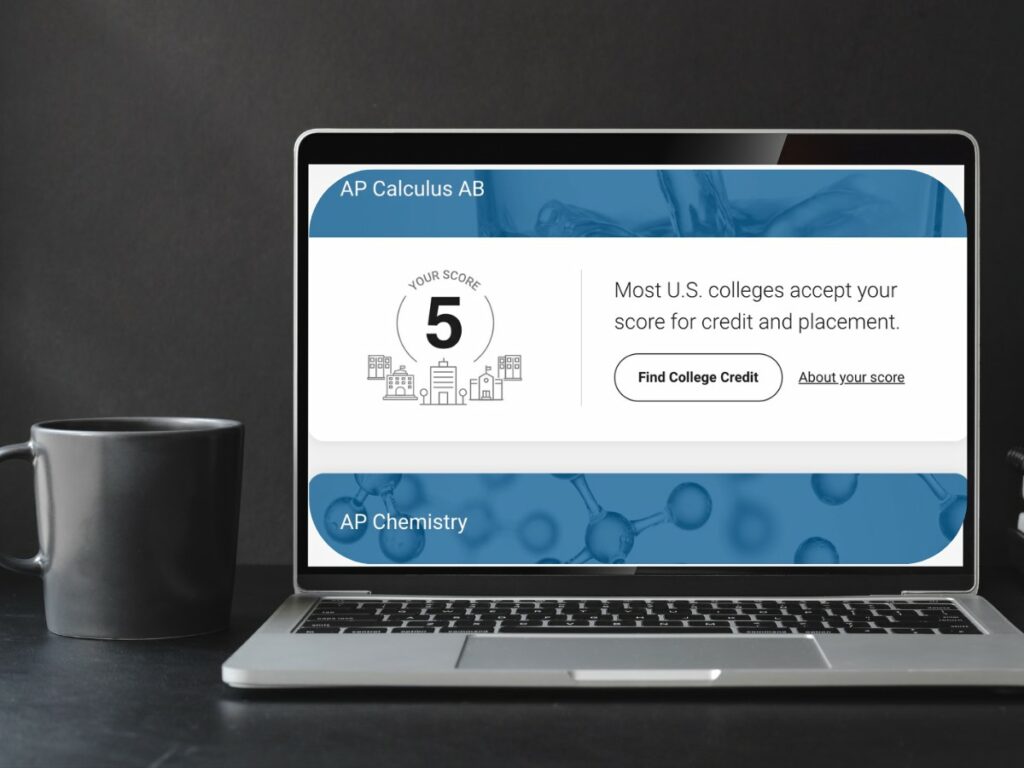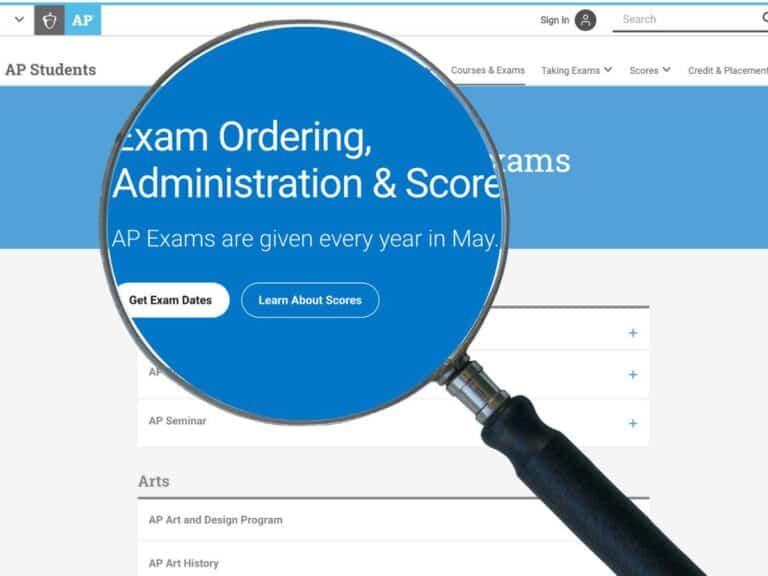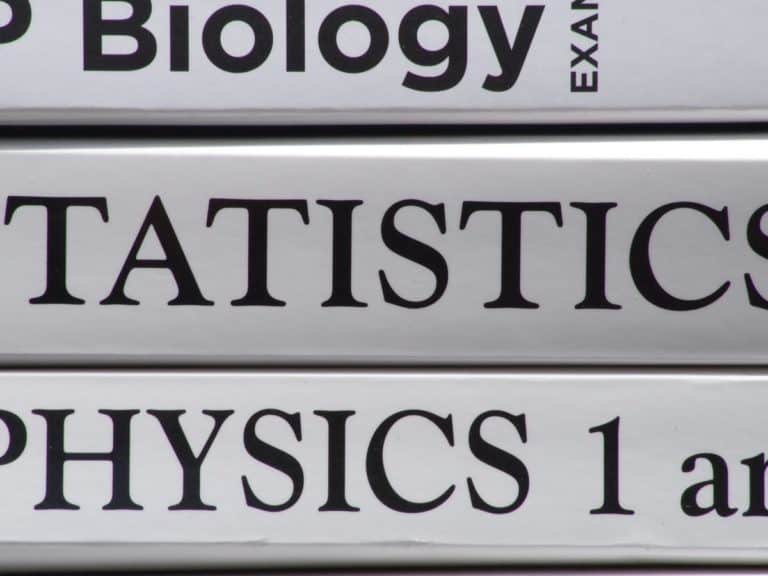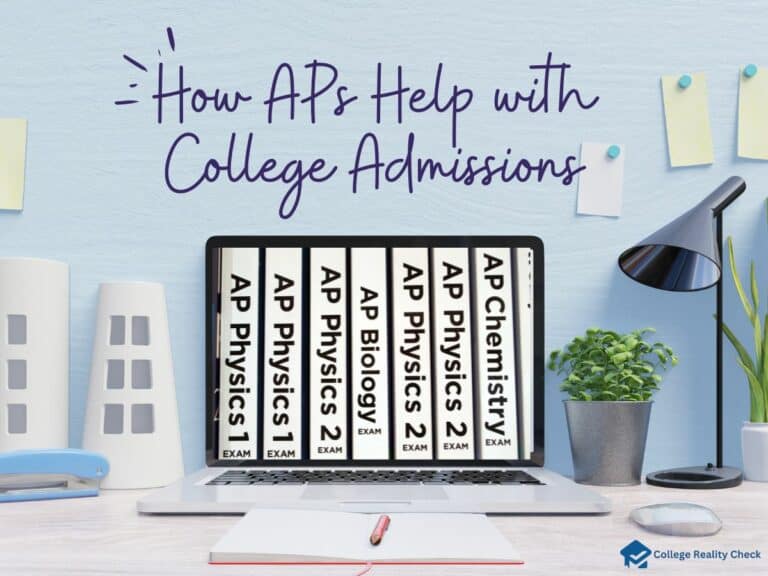Ace Your AP Exams with This 1 Month Master Plan
The administration of AP exams happens once a year in May.
AP test preparation, according to consensus, should start 2 to 3 months before the exam date.
How do you study for AP exams in just a month or less?
Creating a solid study plan is the secret to getting a good AP exam score — a 3 is good, but you should aim for a 4 or 5 if the goal is to earn college credit at a competitive institution.
Besides adhering to your study plan, you should also:
- Read the right materials
- Take practice tests
- Focus on improving weak areas
Never overestimate the power of thinking positive and getting enough rest!
I am neither associated with the College Board, the creator and administrator of the AP program, nor working as an AP tutor, but I scored mostly 4s and 5s in my AP exams.
Needless to say, I am qualified to share with you some last-minute AP tips on acing those tests.

Plan Ahead
One month is not too far away from an AP exam administration date.
However, that’s usually enough to get a high score.
Establishing a foolproof AP exam study plan at the start of your journey toward taking the standardized exam is what you need in order to be able to take that test with confidence and get a fantastic score, too!
Consider the following when creating an AP exam study plan:
- Your various commitments
- Where you will study
- What time you will study
- The goal/s to meet each time
The primary benefit of having a study plan is covering all topics included in the exam by breaking down the course content into manageable chunks that won’t overwhelm you.
Usually, AP test experts say it’s idea to study for 1 to 3 hours each day, 3 to 5 times a week.
I say study 1 to 3 hours every day of the week since you only have a month or less to prepare for an AP exam!
It’s doable, but only if you will prioritize your AP exam preparation.
Besides a good study schedule, it’s also vital that you determine the right study techniques for you.
For instance, you may create a study group or participate in one if you cannot stay motivated on your own and want help in understanding certain topics.
Or you may try to hire a private tutor, who usually charges $35 to $80 per hour.
Count on Reliable Materials
What’s so great about AP exams is that you can take them without taking AP courses.
Your AP class notes are some of the best review materials if you registered for the course that corresponds with the AP exam you are about to take, given that official AP textbooks do not exist.
Do not panic if you took no AP class.
That’s because there are plenty of dependable AP exam review materials out there.
Whether it’s an AP Chemistry or AP Latin exam prep you need, you can find the right one online.
Here are some of the most recommended materials for some AP exams:
| AP Exam Name | Recommended Book |
|---|---|
| AP Art History | Mometrix AP Art History Exam Secrets Study Guide |
| AP Biology | The Princeton Review AP Biology Premium Prep |
| AP Calculus AB | The Princeton Review AP Calculus AB Prep |
| AP Calculus BC | The Princeton Review AP Calculus BC Prep |
| AP Chemistry | The Princeton Review AP Chemistry Premium Prep |
| AP Chinese Language and Culture | Barron’s AP Chinese Language and Culture |
| AP Comparative Government and Politics | Test Prep Books AP Comparative Government and Politics Study Guide |
| AP Computer Science A | Barron’s AP Computer Science A Premium |
| AP Computer Science Principles | The Princeton Review AP Computer Science Principles Prep |
| AP English Language and Composition | The Princeton Review AP English Language & Composition Premium Prep |
| AP English Literature and Composition | The Princeton Review AP English Literature & Composition Prep |
| AP Environmental Science | Barron’s AP Environmental Science Premium |
| AP European History | Crash Course AP European History |
| AP French Language and Culture | Barron’s AP French Language and Culture |
| AP German Language and Culture | Prufungstraining AP German Language and Culture |
| AP Human Geography | The Princeton Review AP Human Geography Prep |
| AP Italian Language and Culture | Ace the AP Italian Language and Culture Exam |
| AP Japanese Language and Culture | The Ultimate Guide to the AP Japanese Language & Culture Exam |
| AP Latin | Hackett Test Prep Manual for Use With AP Latin |
| AP Macroeconomics | Crash Course AP Macroeconomics |
| AP Microeconomics | Crash Course AP Microeconomics |
| AP Music Theory | Barron’s AP Music Theory |
| AP Physics 1: Algebra-Based | The Princeton Review AP Physics 1 Premium Prep |
| AP Physics 2: Algebra-Based | Christopher Bruhn 5 Steps to a 5: AP Physics 2: Algebra-Based |
| AP Physics C: Electricity and Magnetism | ClearNotes Essentials Notes on AP Physics C: Electricity and Magnetism |
| AP Physics C: Mechanics | Dan Fullerton The AP Physics C Companion: Mechanics |
| AP Precalculus | Barron’s AP Precalculus Premium |
| AP Psychology | Barron’s AP Psychology Premium |
| AP Spanish Language and Culture | The Princeton Review AP Spanish Language & Culture Prep |
| AP Spanish Literature and Culture | The Princeton Review AP English Language & Composition Prep |
| AP Statistics | The Princeton Review AP Statistics Prep |
| AP United States Government and Politics | The Princeton Review AP US Government & Politics Premium Prep |
| AP United States History | The Princeton Review AP US History Premium Prep |
| AP World History: Modern | The Princeton Review AP World History: Modern Premium Prep |

Take Practice AP Exam
No list of AP exam prep tips would be complete without simulating the test.
There are three possible types of questions or tasks on an AP exam:
- Multiple-choice questions
- Free-response questions
- Thorough-course performance task
According to the College Board itself, most AP exams are a combination of multiple-choice and free-response questions — the first part usually consists of multiple-choice questions.
Exam structures can vary from test subject to test subject.
To give you a much better idea, let’s compare the following AP exams:
AP US History
| Number of Questions | Minutes to Complete |
|---|---|
| 55 multiple choice questions | 55 minutes |
| 4 short response answers | 50 minutes |
| Document-based questions | 55 minutes |
| Essay | 35 minutes |
AP World History
| Number of Questions | Minutes to Complete |
|---|---|
| 70 multiple-choice questions | 55 minutes |
| 3 essays | 40 minutes each |
AP Biology
| Number of Questions | Minutes to Complete |
|---|---|
| 63 multiple-choice questions | 90 minutes |
| 8 free-response questions | 90 minutes |
I would suggest taking a sample test before reviewing to determine your strengths and weaknesses — of course, you need to devote more time to areas you are not that familiar with.
Then, take it again after covering all topics to see whether or not your preparation has been effective.
Undergoing a simulated AP exam multiple times may help ease test anxiety and boost your confidence, thus increasing your chances of getting a score of 5.
What is a 5 on an AP exam?
It’s the highest score you can get on an AP exam!
And, in most instances, it’s the score you need to get college credit at a top-tier institution — it’s rare for some of the most competitive colleges in the land to give credit to AP exam scores lower than a 4.
Here’s a sample one-month AP exam study plan:
Four weeks before the AP exam
- Take a full-length practice AP exam and identify areas that need more focus
- Sort out topics from the ones you know very little to the ones you know very well
- Spend 1 to 3 hours on topics with which you need to be more familiar
Three weeks before the AP exam
- Reach out for help for areas you find too complex to learn on your own
- Utilize after-school and online resources to understand challenging topics better
- Remember to also brush up on topics you already know
Two weeks before the AP exam
- Take another full-length practice AP exam
- Compare your score from your initial practice test
- By this time, roughly 75% of your work should be done
One week before the AP exam
- Focus more on areas that are still problematic at this point in your AP exam preparation
- It is best to ensure that you are getting enough sleep at night
- Stick to a healthy diet
- Gather all necessary materials
Disclaimer: The views and opinions expressed in this article are those of the authors and do not necessarily represent those of the College Reality Check.





